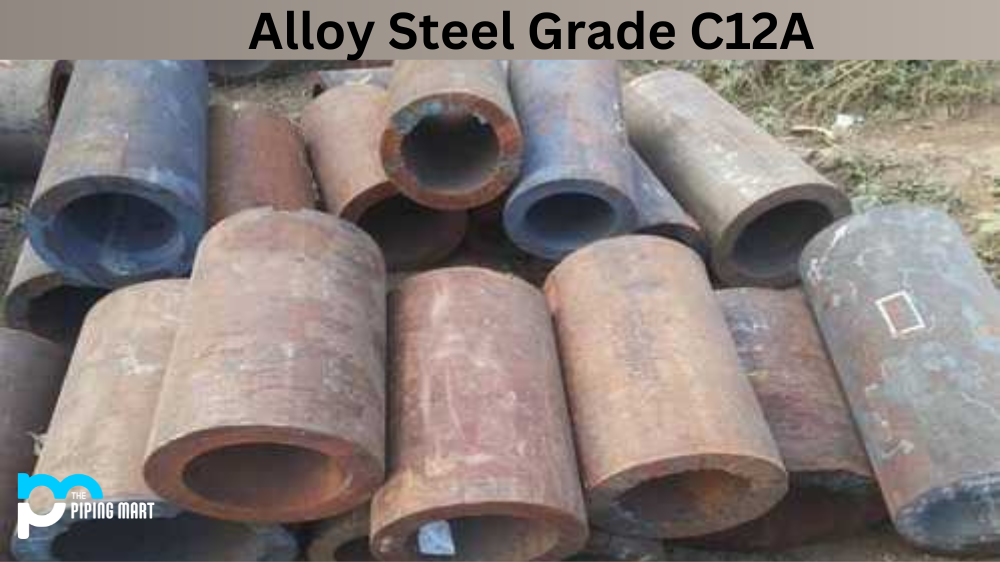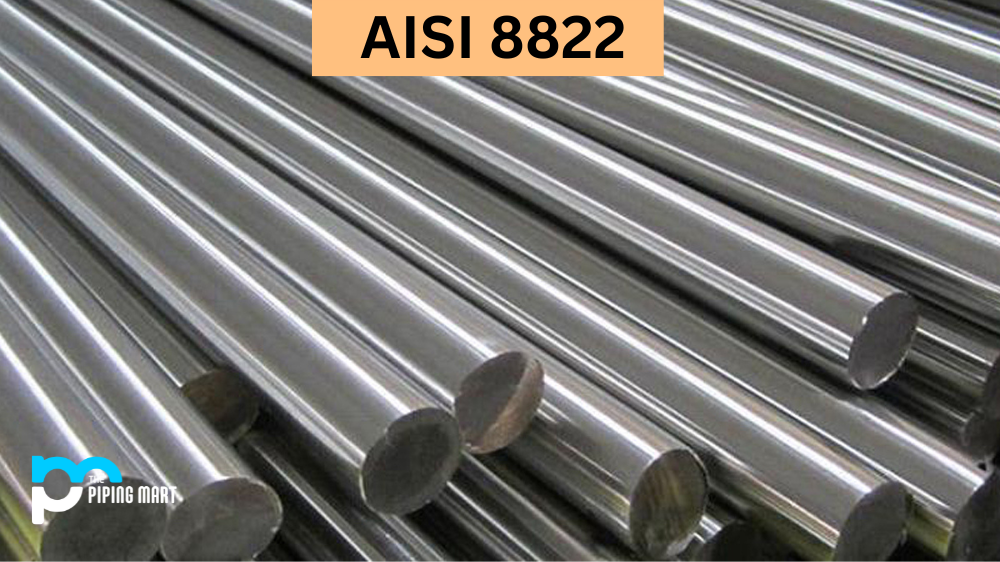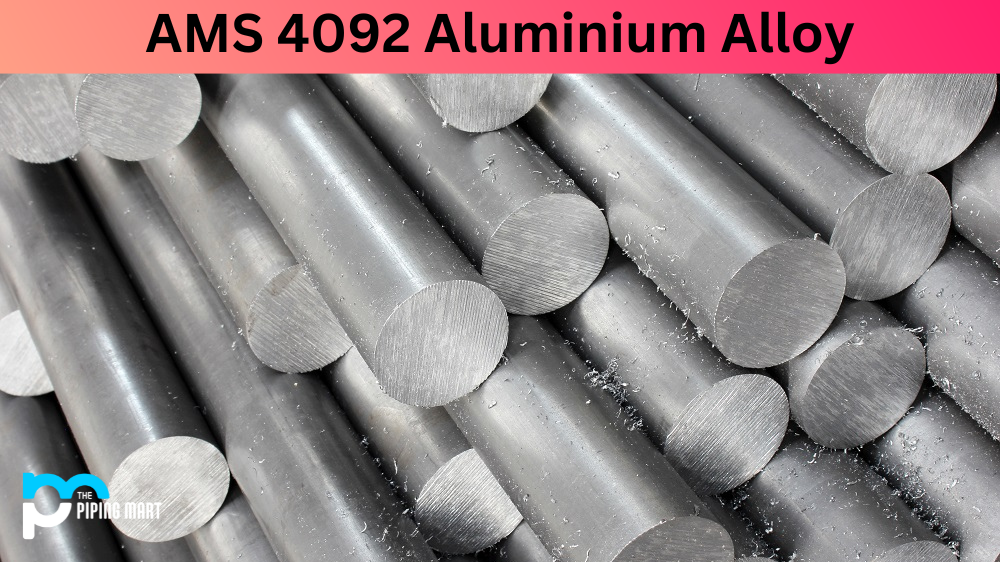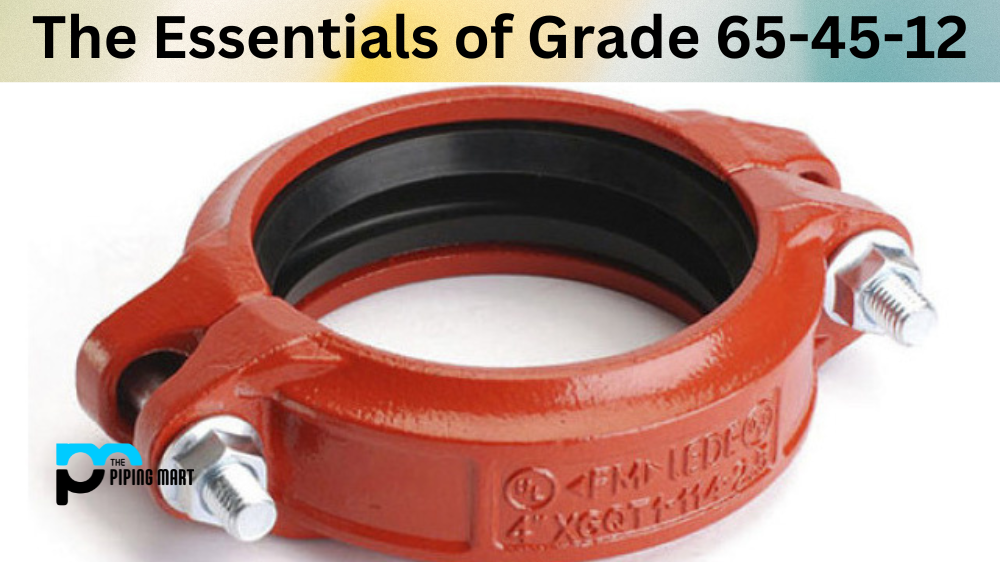Alloy Steel Grade C12A is an iron-based alloy steel that is widely used in various industries due to its many advantageous properties. It is relatively inexpensive, has excellent corrosion and heat resistance, and can be easily machined and welded. Let’s take a closer look at some of the key features of this alloy steel grade.
Composition
The composition of Alloy Steel Grade C12A is as follows: iron (Fe) 86-90%, carbon (C) 0.6-0.8%, manganese (Mn) 0.5-1%, silicon (Si) 0.3-0.5%, phosphorus (P) ≤ 0.03%, sulfur (S) ≤ 0.03%. The exact composition will vary depending on the manufacturer, but these are the general parameters of the alloy steel grade composition.
| Carbon: | 0.08-0.12 |
| Manganese: | 0.30-0.60 |
| Silicon: | 0.20-0.50 |
| Sulfur: | 0.010 max |
| Phosphorus: | 0.030 max |
| Nickel: | 0.40 max |
| Chromium: | 8.00-9.50 |
| Molybdenum: | 0.85-1.05 |
| Columbium: | 0.06-0.10 |
| Nitrogen: | 0.030-0.070 |
| Aluminum: | 0.040 max |
| Vanadium: | 0.18-0.25 |
Chemical Properties
The chemical properties of Steel Grade C12A include high strength, good toughness, and excellent wear resistance, making it an ideal choice for applications such as construction machinery parts, engine components, and other tools that require durability and strength in challenging conditions.
Mechanical Properties
The mechanical properties of Alloy Grade C12A make it ideal for a variety of applications including automotive components, agricultural equipment parts, valves and pumps, fasteners, shafts and gears, dies and moulds. Its high tensile strength makes it resistant to cracking or breaking when exposed to extreme temperatures or pressure changes. Additionally, its excellent fatigue resistance helps minimize wear over time.
| Tensile Strength: | 85ksi-110ksi (585-760Mpa) |
| Yield Strength: | 60ksi (415Mpa) min |
| Elongation in 2in. or 50mm: | 18.0% min |
| Reduction of Area: | 45% min |
Physical Properties
Physical properties of Alloy C12A include a melting point range from 1550°F to 1620°F (845°C – 880°C), density 8 g/cm3, thermal conductivity 20 W/mK, elastic modulus 210 GPa, Hardness 293 Brinell HBW, Poisson’s ratio 0.27 – 0.30.
These physical qualities help determine how well the material will perform in certain environments or applications, such as welding or machining operations where heat may be present or required during fabrication.
Uses
Grade C12A is an important grade of steel used in many industries and applications. It is quick to machine, extremely wear-resistant, and offers excellent corrosion protection. It is popular for use in the petrochemical and oil & gas industries thanks to its superior resistance to acids and alkalis and abrasion resistance. This strength makes it ideal for protective items such as tubing, flanges, valves, and bolts. Similarly, it is often used in the food industry due to its excellent hygiene qualities; items such as food safe cutlery are often made with Alloy Steel Grade C12A. Its strong ductility also makes it a great choice for automotive components such as pistons and gear parts. With so many uses, Alloy Steel Grade C12A has diversified into many different industries and proves itself time after time to be a high performance steel grade that can withstand high stress and temperatures.
Corrosion Resistance
Alloy C12A offers superior corrosion resistance that exceeds even the highest standards of industry expectations. This is due to its unique composition, which includes chrome and nickel, both of which provide excellent protection from the corrosive effects of outside elements such as extreme temperatures or excessive moisture. In addition, carbon plays a pivotal role in promoting strength and toughness in the alloy, allowing it to handle higher stress levels with ease. Thanks to these properties, alloy steel grade C12A is often used for applications where materials need to be constructed of top-of-the-line quality and remain functional and strong in challenging environments. Furthermore, its usefulness is highly sought after in industries such as marine engineering or oil rigs.
Heat Resistance
Steel C12A is known for its ability to resist the damaging effects of heat. The metal, composed of carbon and manganese, has been found to provide much more durable performance in comparison with other steels when exposed to high temperatures. This makes it a desirable choice for applications requiring heat resilience, such as steam pipes and car headers. Thanks to its proven heat resistance combined with its strength and toughness, Alloy Steel Grade C12A is an oft-used option in many industries today.
Heat Treatment
The heat treatment of Alloy Steel Grade C12A can strengthen its structure and frequently modify its properties. This is done by heating the steel, depending on the desired effect, and then cooling it in a furnace, oil bath, or air to help ensure that the desired changes are made. Alloy Steel Grade C12A can become harder, stronger, and wear-resistant through this heat treatment without compromising its ductility. Its attributes and physical characteristics, such as toughness, ductility and hardness, can be manipulated with the combined effects of alloying elements in precise amounts depending on the application.
| Heat treatment | 1250°F [675°C] |
Machining
Machining Alloy Steel Grade C12A comes with a set of unique challenges that require special solutions. The material itself is designed for strength, making it inherently hard and resistant to traditional machining techniques. As such, machine operators must take care to use the correct tools and techniques when attempting to work on this material. Proper use of cutting fluids can help reduce heat buildup in the surface area, extended tool life and improved surface finish quality. Special drills, reamers and taps may be required to create parts of high precision when machining grade C12A steel. When done correctly, the end results are strong, durable finished parts well worth the time spent perfecting the process.
Welding
Welding alloy steel grade C12A is a process that requires a special skill set and a great deal of care. Proper welding of this particular grade must be done with exact temperatures, well adjusted timers and technique, as it isn’t very forgiving if the parameters need to be set correctly. This material is often used in aerospace, where precision and high quality are essential for its long-term use. Despite its relative difficulty, taking time to understand the composition of alloy steel grade C12A allows for effective oversight of welding projects.
Conclusion
In conclusion, Alloy Steel Grade C12A is an incredibly versatile material with excellent corrosion resistance, heat resistance and mechanical properties that make it suitable for a wide range of applications in many industries, including automotive engineering, construction machinery parts production, petrochemical refining equipment manufacturing and more! Its ability to be machined easily also makes it suitable for prototyping purposes and for customizing existing components on site without having to replace them entirely with new parts fabricated offsite, which could be expensive depending on the component’s size and complexity of the component needed! So if you’re looking for an affordable steel grade with excellent performance characteristics, consider using Alloy Steel Grade C12A!
Meet Heer, a dynamic and driven writer learning tricks of her trade in the metal industry. With a background in Digital Marketing, Heer brings a unique perspective to her writing, sharing valuable insights. Apart from blogging she like reading and hiking.




